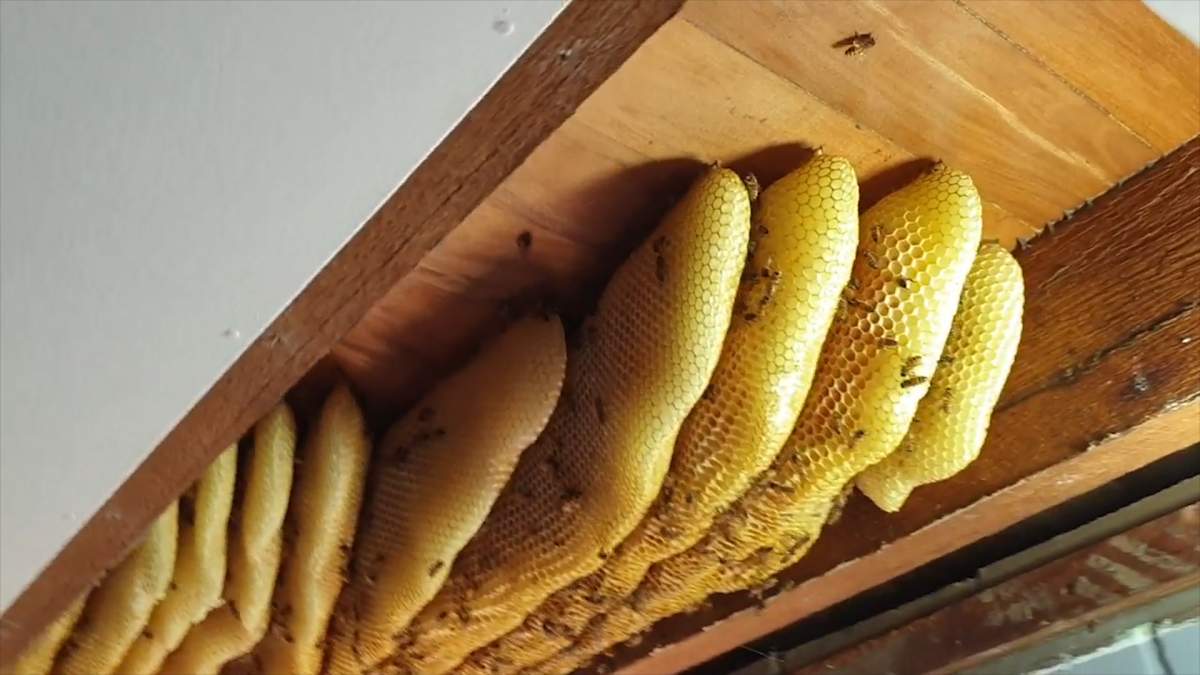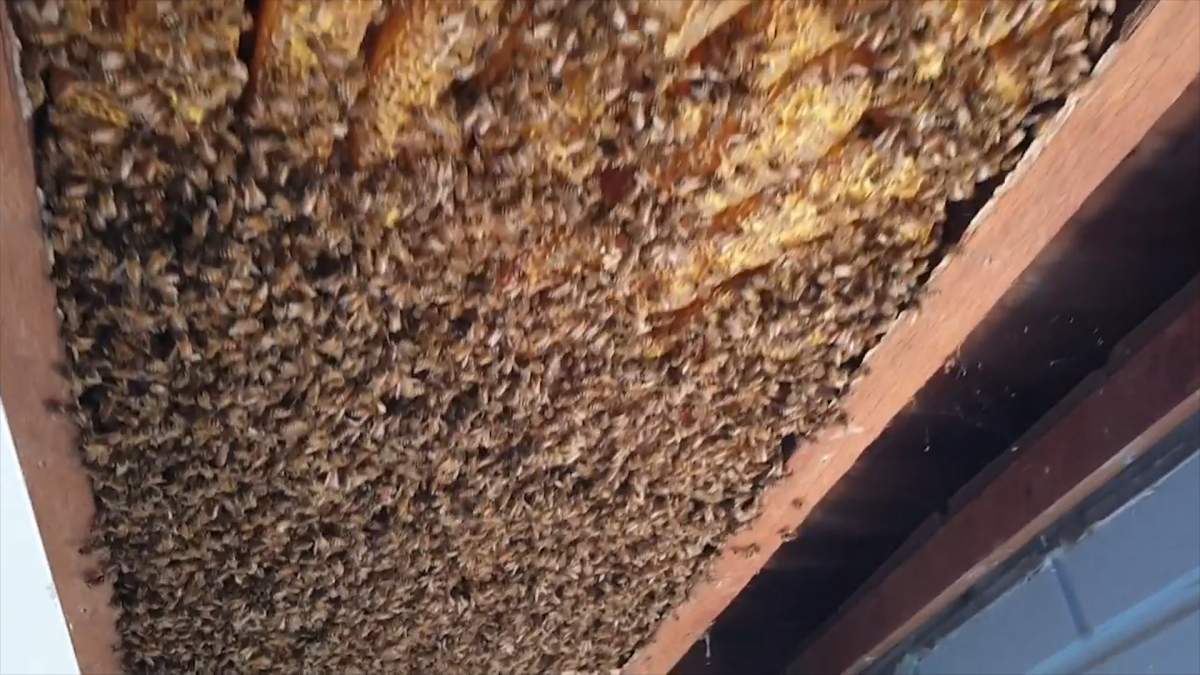A Brisbane, Australia home was buzzing on August 17, but not for the reason you’d think — an approximately eight-foot beehive was being removed from the roof, with about 60,000 bees inside.

Paul Wood of Brisbane Backyard Bees said he had received a call about the bees after a home owner in Bracken Ridge, a suburb of Brisbane, noticed some of the insects flying around the house.
Wood told Global News that on arrival, he used a thermal camera to identify the “hot part” of the hive, known as the “brood” where eggs, larvae and pupae of honeybees are found. In turn, this gave him an idea of the hive’s general location.
READ MORE: Bee population recovering due to regenerative farming, producers say

He then opened up the sheeting of the ceiling to find the entire hive.
“It’s a bit of a two-edged sword,” he said about having to remove intricate hives.
“We need to remove them if the homeowner needs them gone … but we’re dismantling such a beautiful construction and that’s a bit sad.”
When removing the hive, Wood says he tries to do so as gently as possible, with “close to 100 per cent” of the hive surviving the process. Once he finds the queen, he puts her in a separate carrying vessel to carry her to his home gently, and then also saves the brood comb.

Get breaking National news
The 60-year-old said he typically brings the swarms home with temporary hives, and then ties the brood into the new hive so the colony can nurture it in its new home. The bees then build new honeycomb on top of the temporary hive.
“They will survive and thrive in a brand new hive in a Brisbane suburb,” he said.
READ MORE: B.C. bee company gets social media shout-out from Prince Harry and Meghan

The particular hive Wood removed, however, was not the largest he has had to remove.
He said in St. Lucia he removed a hive that resulted in him getting about 100 kilograms of honey. For comparison, about 50 kilograms of honey was retrieved from the home in Bracken Ridge.
According to the beekeeper, there are a fair amount of bees found in Brisbane suburbia.
Part of the reason, Wood says, is because there are not as many trees in the area limiting where bees can make their hives, and instead, they find spots in the walls and roofs of homes.
“We cut down trees that have a hollow in them and that’s what bees need,” he said. “We tend to think when a tree has got a hollow in it, it is past its useful life but that’s when it can provide habitats … that’s why they get into the cavities of houses, because we don’t leave enough natural habitats for them.”
In terms of the honey that comes from the hives, Wood said he runs it through a strainer and then jars it for future use, with half the honey being given to the owner of the home the hive came from, as he did in this case.
- Severe atmospheric river storm causes flooding, mudslides in Southern California
- Teen suspect claims no memory of stepsister’s cruise ship death, documents say
- Powerball player claims $1.817 billion lottery jackpot in Arkansas
- DOJ finds over a million potentially relevant Epstein files, delays release










Comments